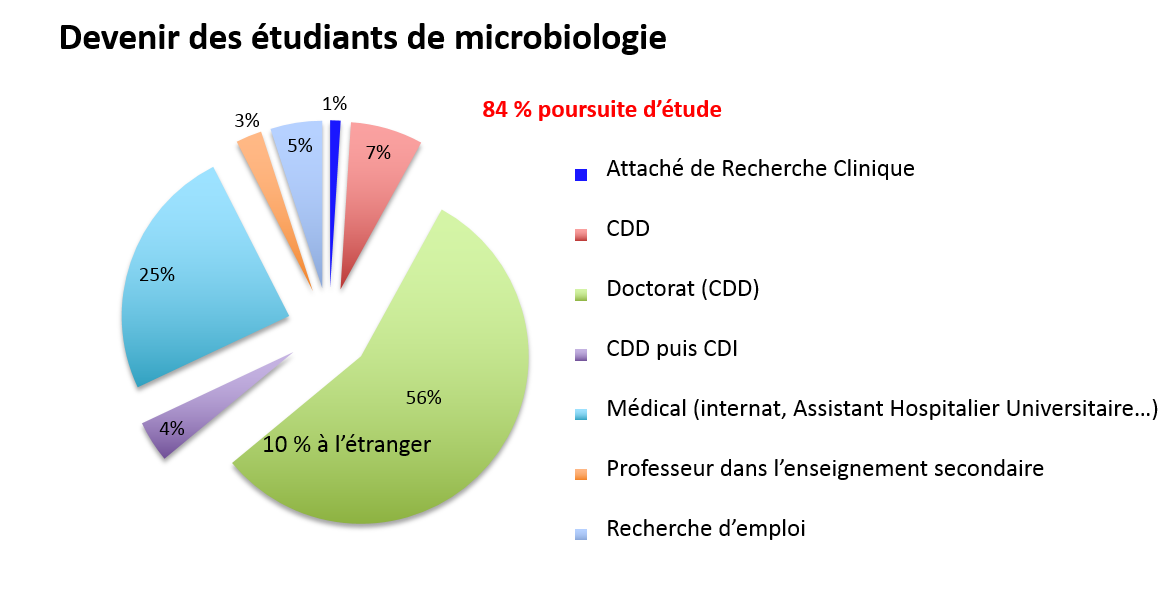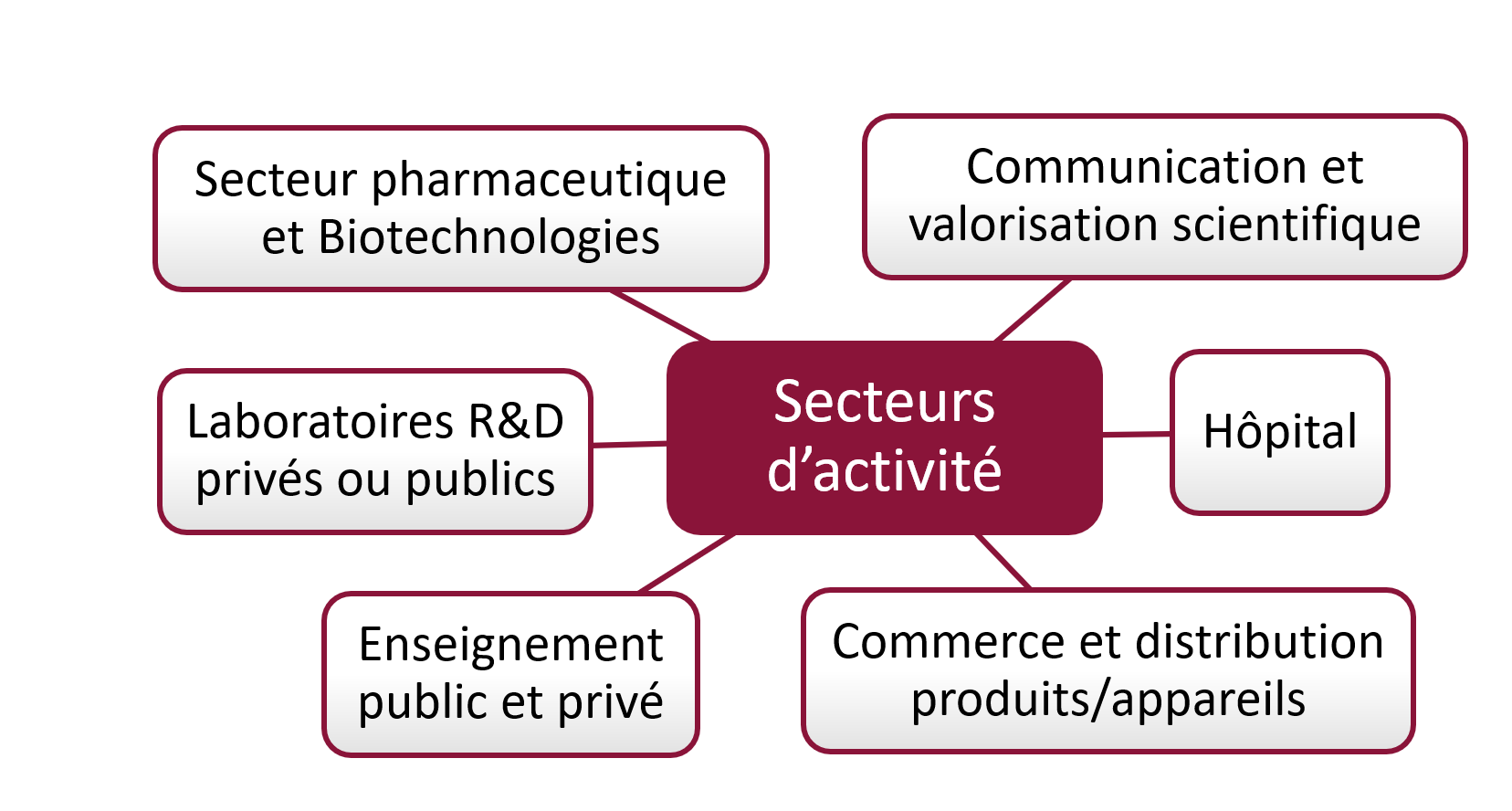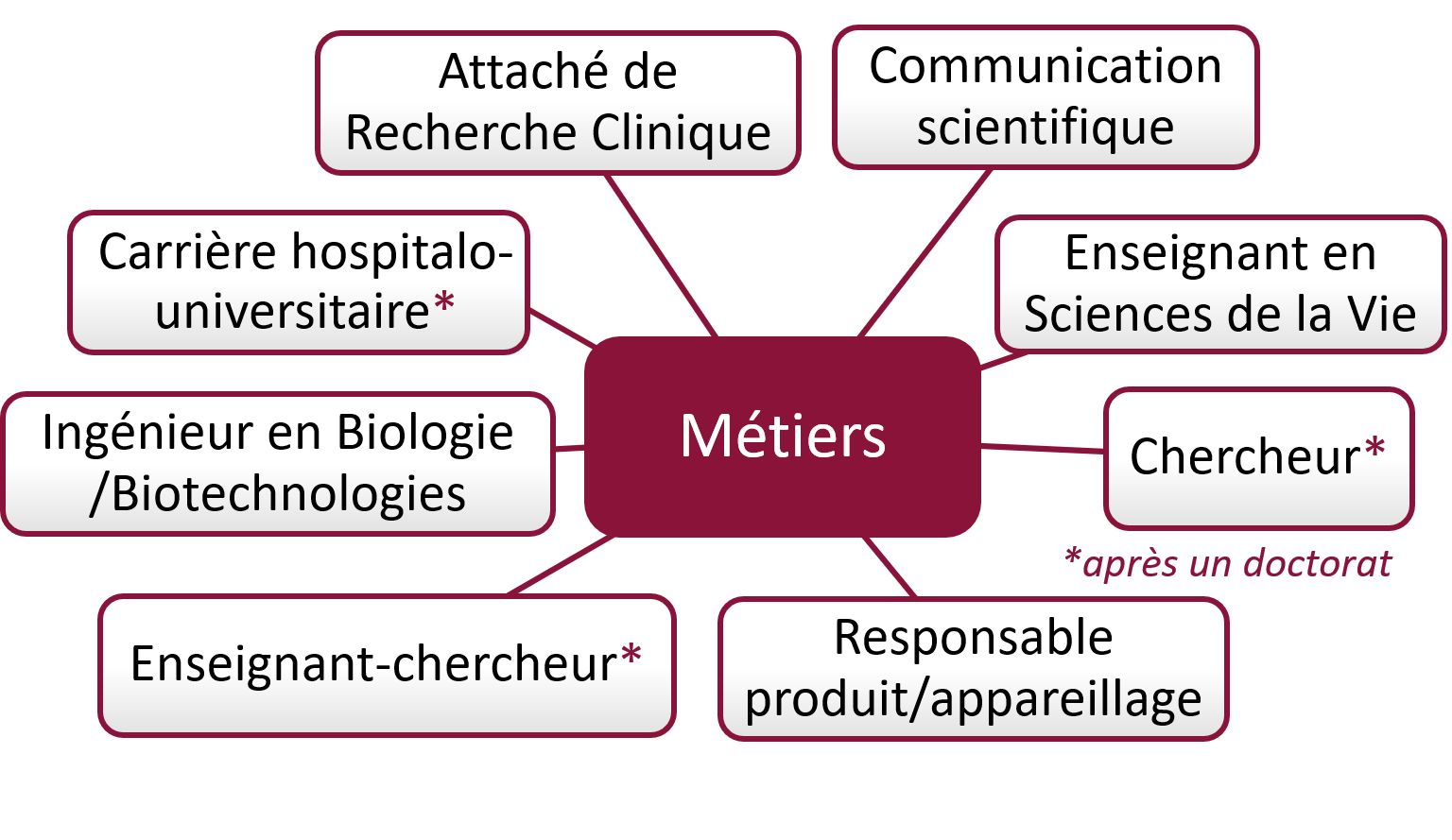Persons in charge
Isabelle Martin-Verstraete – Xavier Nassif

Isabelle Martin-Verstraete – Xavier Nassif
The Microbiology track of the IMVI Master’s degree is a training of excellence in research that aims to acquire the concepts, approaches and technologies of modern microbiology. Priority is given to integrated approaches, aiming to understand the physiology of microorganisms from fundamental molecular aspects to global and evolutionary biology and to study their functioning in their natural environment and their impact on ecosystems.
The M2 BMC Microbiology track offers three tracks:
In partnership with Sorbonne University and the Institut Pasteur.
The training aims to :
Bac +4
20 students
Initial or continuing education
Insertion rate > à 95 % at two years, mostly in thesis (> 55%), medical internship or on fixed-term contract
Good to very good level in Microbiology.
For students outside the health sector, 9 ECTS in microbiology or equivalent. For students in the health sector, research courses in Microbiology or equivalent.
Clearly identified professional project in line with the training. Doctorate or research/development engineer.
French level C1 or equivalent. A good level of English (read and written) is required.
Internships or professional experience are required. Internships in laboratories are a bonus.


